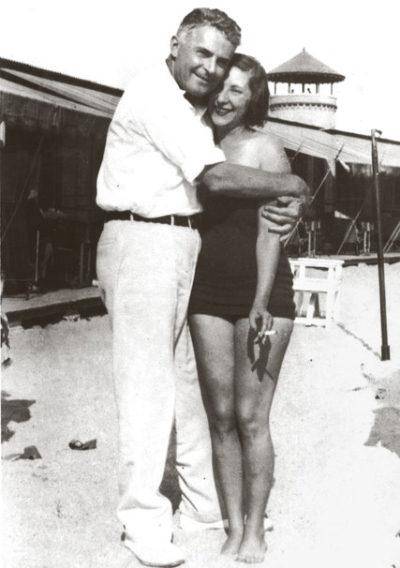Rosalie Rayner (Rosalie Alberta Rayner)

Rosalie Rayner was born in Baltimore, Maryland on September 25, 1898. Her father and grandfather, Albert William Rayner and William Solomon Rayner, respectively, were successful businessmen. Her mother, Rebecca Selner Rayner, and father had one other daughter, Evelyn. Albert William Rayner made a living dealing with railroads, mining, and shipbuilding. The Rayner family also supported Johns Hopkins University, to which they contributed $10,000 toward research. Rayner’s uncle, Isidor Rayner, was also a prominent public figure. Isidor worked as a senator in Maryland and managed public inquiries into the sinking of the Titanic, in addition to serving as Attorney General of Maryland for four years. Rosalie Rayner continued her education at Vassar College in New York, where she graduated with a Bachelor of Arts degree in 1919. At Vassar, she studied alongside Mary Cover Jones, who became a prominent psychologist with a focus on lifetime development. Upon graduation, Rayner enrolled at Johns Hopkins University with the intention of earning a graduate degree in psychology. She was hired as an assistant to John B. Watson, who is best known for pioneering the approach to behaviorism. Behaviorism is a term that Watson introduced into the field of psychology to describe the goal of predicting and controlling observable behaviors.
During her time at Johns Hopkins University, Rosalie Rayner conducted research on alcohol in the body alongside her behaviorist research with Watson. She and Watson aimed to make family life reflect an empirical environment, based on the belief that behaviors were not hardwired at birth, but instead were acquired through conditioning. Rayner and Watson claimed to have studied over 500 children, with the Little Albert experiment being their only attempt at a psychological experiment (it would not be categorised as an experiment today). The basis of their study was conditioning a 9-month old baby, referred to as “Albert”, to fear a white rat, which had previously been a neutral stimulus. The fear was generalized to other white, furry stimuli, such as fur coats, rabbits, and a Santa Claus mask. The results of the study were published in the Journal of Experimental Psychology. Despite its prominence, the “Little Albert” study would be deemed highly unethical by modern standards. Rayner and Watson worked together on an article in which they studied over 500 children at different stages of development. This article drew conclusions about behavior and how it is always the result of some type of stimulus. It also stated that if the relationship between a stimulus and behavior could be seen, more forms of emotional expression could be taught. Rayner and Watson believed that children could have a personality set by the age of two.
Rosalie Rayner also contributed to a how-to book called Psychological Care of Infant and Child. This book encouraged mothers to approach child-rearing with scientific principles. In the chapter “Too Much Motherly Love”, the maternal bond was addressed. Rayner described how too much tenderness and love towards a child could be detrimental for development. Rayner went so far as to say that it could negatively affect a child’s future marital satisfaction. In 1930, Rayner’s first article written without Watson, “I Am the Mother of a Behaviorist’s Son”, was published. In the article, Rayner encouraged breaking the bonds of mother attachment as early as possible. However, in the article she also affirmed her affection toward her own sons. Recently, University of New Hampshire psychologist and historian Ben Harris revealed another article by Rosalie Rayner Watson that shows her view of marriage and the family, which some might say presents a feminist analysis. Rosalie Rayner unexpectedly died on June 18, 1935 in Norwalk Hospital in Connecticut. She had contracted dysentery from eating tainted fruit.
Born
- September, 25, 1898
- USA
- Baltimore, Maryland
Died
- June, 18, 1935
- USA
- Norwalk, Connecticut
Cause of Death
- dysentery

